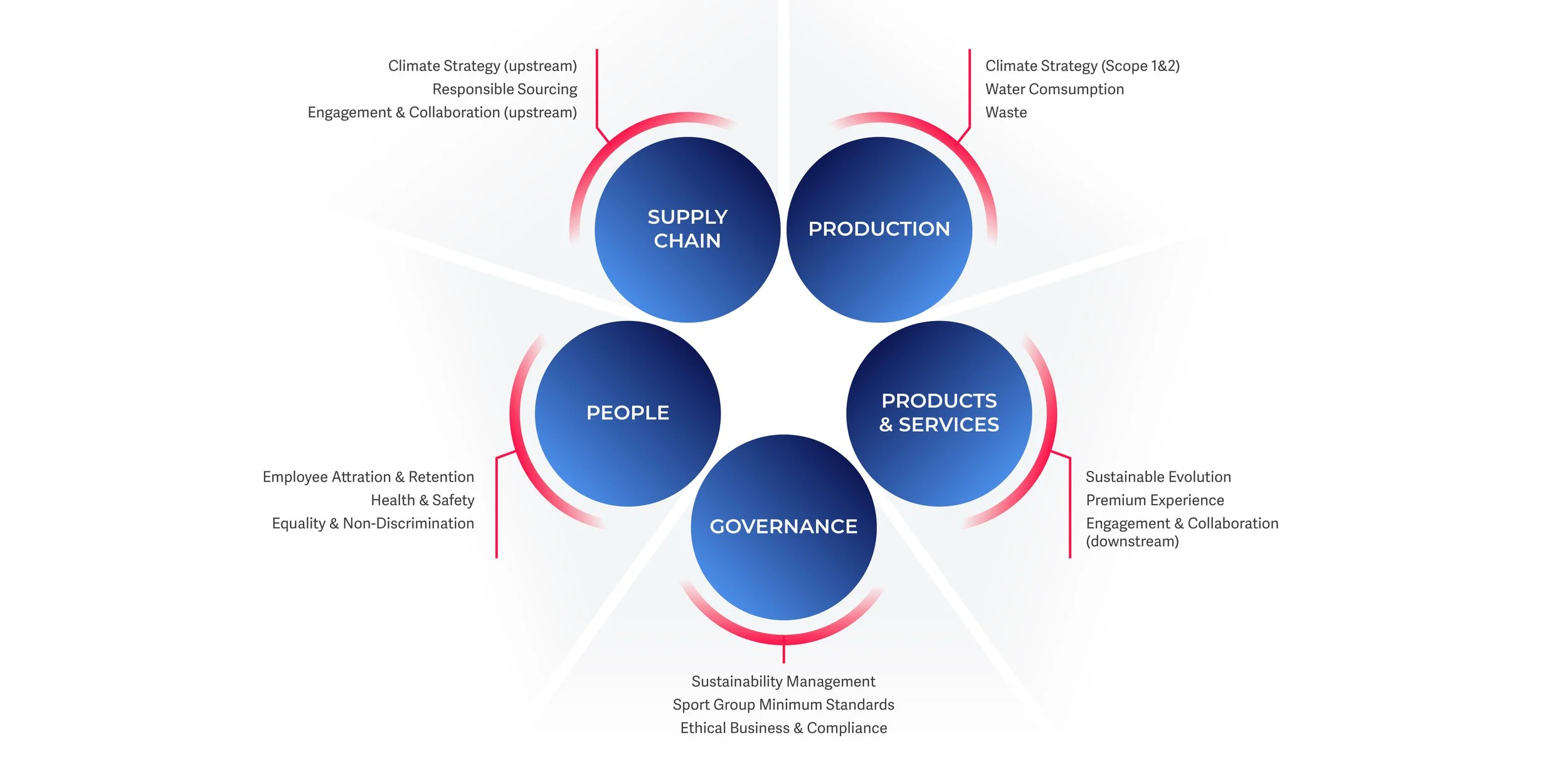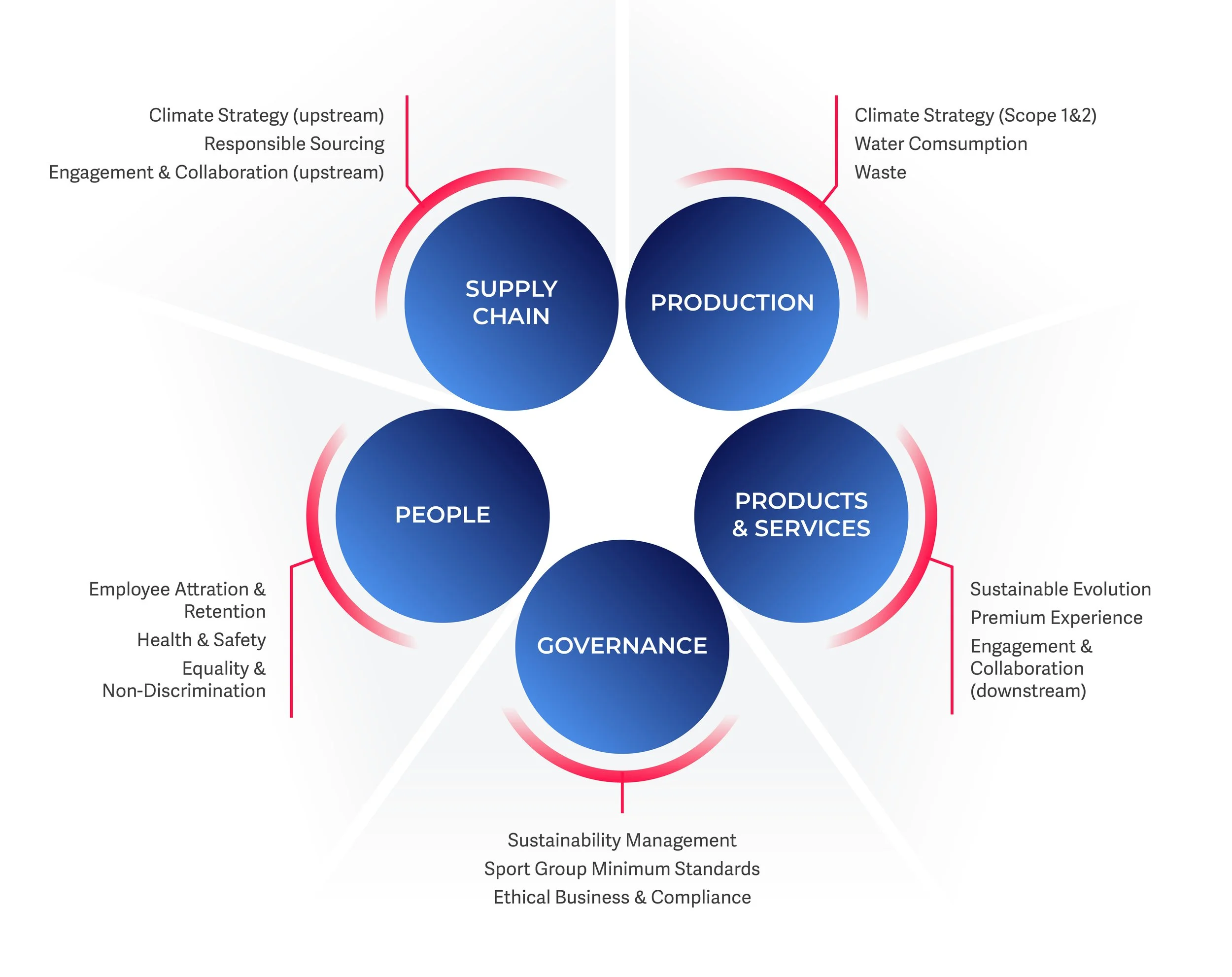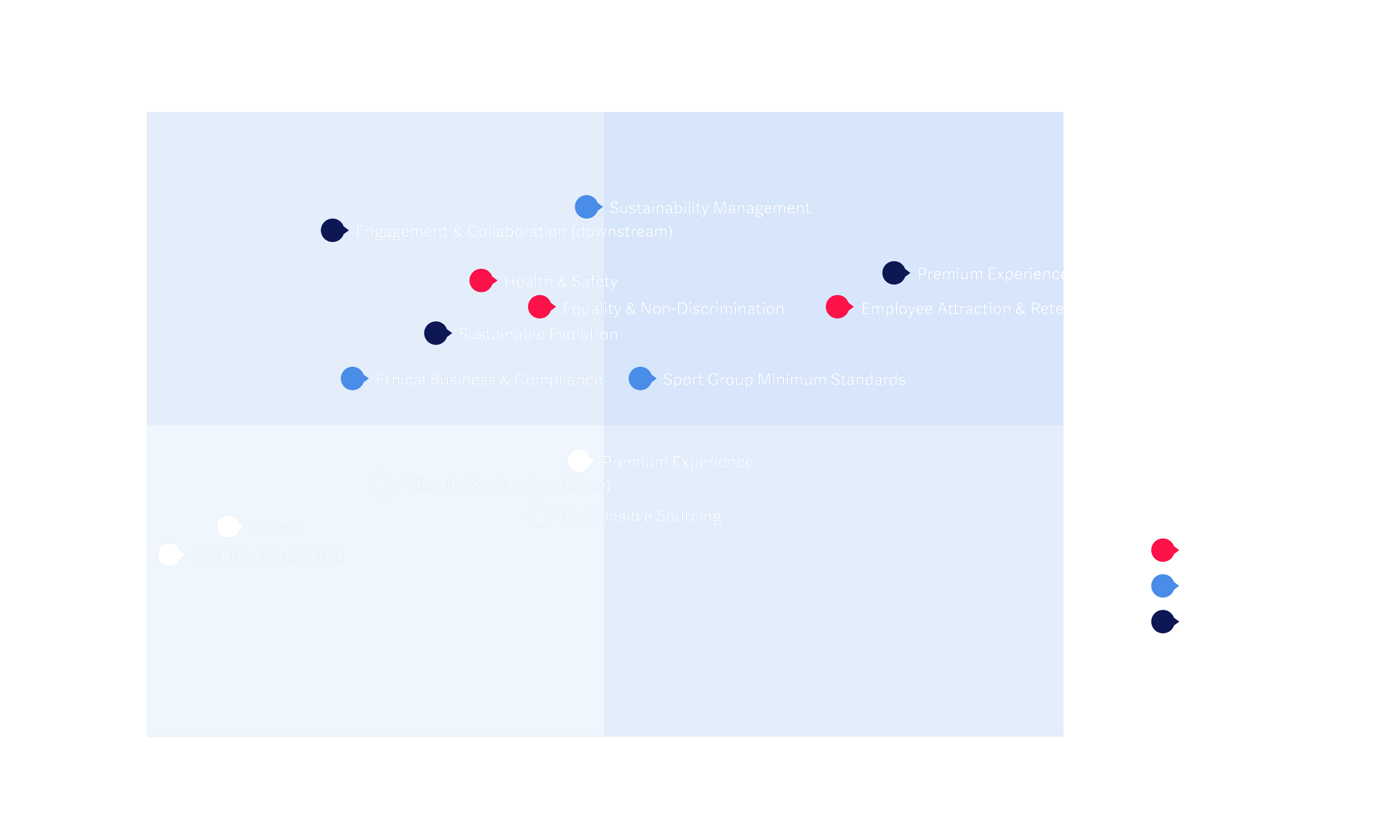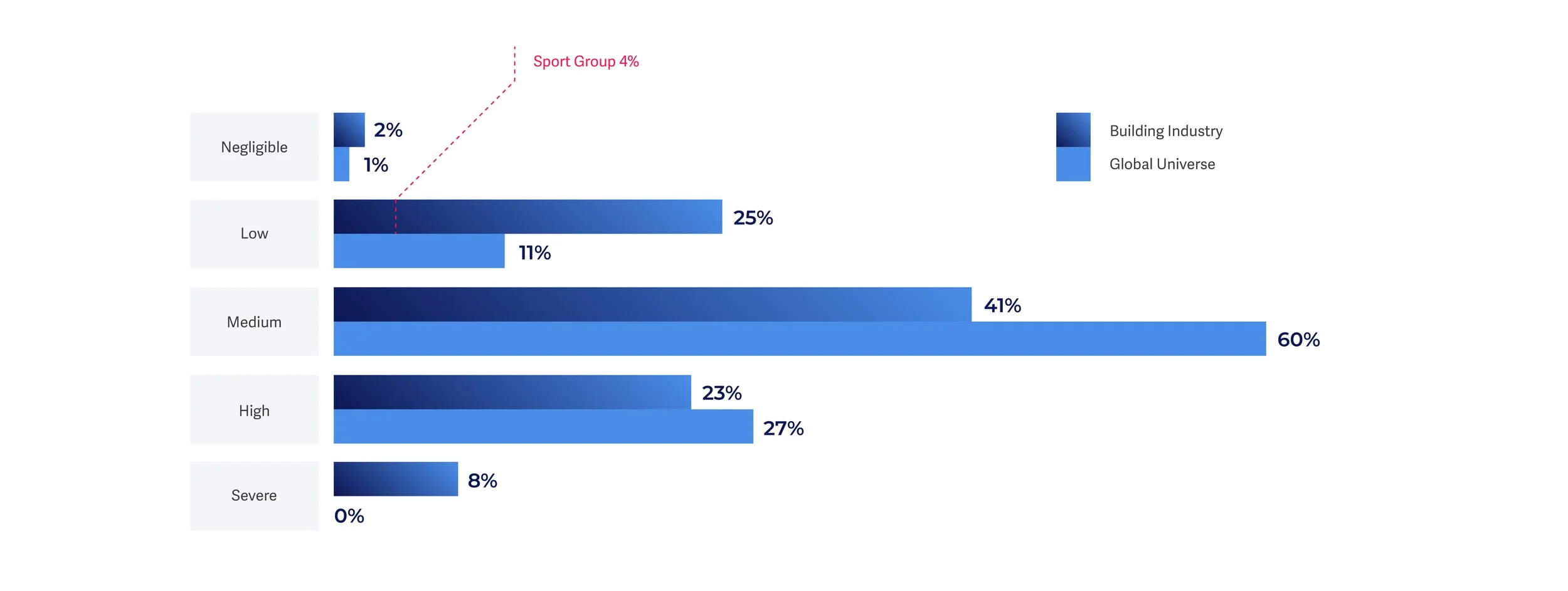Sport Group aims to make sustainable sports solutions accessible worldwide.
Its mission is to develop and offer innovative, sustainable sports surfaces that provide benefits for both customers, communities and the environment. Our vision is to maximize the positive impact on people and the environment while minimizing negative effects throughout our entire value chain.
"Sustainability is not an additional cost factor, but an investment in our future. It is no longer a choice, but a must for every company that wants to be successful in the long term. It's not just about reducing your own ecological footprint, but also about using technology in a targeted way to help others on the path to greater sustainability." - Klaus Hauschulte, COO Sport Group.
ESG Strategy and Key Focus Areas
Sport Group's Environmental, Social and Governance (ESG) strategy is based on a Double Materiality Analysis, which considers both the company’s impact on the environment, society and government, as well as ESG-related financial risks and opportunities. This analysis led to the identification of 5 Action Fields with 15 Focus Topics:
SPort Group Action Fields & Focus Topics
The ESG Action Fields identify specific areas in which organizations are taking strategies and actions to improve their ESG performance. ESG Focus Topics are sub-topics of the action areas that have a positive or negative impact on an organization's ability to create value. By focusing on these key areas, we aim to enhance our overall performance across the entire Group.
Double Materiality Matrix
The Double Materiality Matrix visualizes the most important ESG issues at Sport Group and categorizes them into our five ESG Action Fields: people, governance, production, products and services, and supply chain.
SPORT GROUP DOUBLE MATERIALITY MATRIX
The impact materiality (y-axis) focuses on how the company's activities affect the environment and society. Meanwhile, financial materiality (x-axis) considers risks and opportunities related to ESG factors of Sport Group.
ESG Targets
In order to move responsibly into the future, it is essential to define, pursue and achieve ambitious sustainability goals through valid ESG data and it’s steering. Therefore, we increasingly rely on data-driven ESG management, including a newly developed ESG database and an enhanced carbon footprint tracking system. The company has set specific ESG targets with the baseline year of 2018:
With support of our global data management and ESG reporting tool, we are able to continuously track our targets and ensure their achievement based on individual corporate initiatives and projects.
ESG Ratings and Reports
We take pride in the fact that our dedication to sustainability is recognized in public ESG assessments and ratings. Sport Group actively engages in sustainability ratings to offer capital market participants and customers reliable information, enhancing transparency and comparability of our sustainability performance. These ratings also provide valuable insights that drive our ongoing improvement efforts.
From 2021 to 2023, Sport Group was assessed by Sustainalytics, a leading ESG rating agency under Morningstar, which evaluates companies based on their exposure to ESG risks and their ability to manage them effectively.
Key highlights from the rating:
Low ESG Risk: Between 2021 and 2023, Sport Group was consistently rated as having a low risk of material financial impact from ESG factors, placing us third within the Building Products industry in 2023.
Industry Leader and global recognition: Sport Group was ranked in the top 4% within our industry and among the top 6% of all companies assessed worldwide by Sustainalytics.
We look forward to sharing our latest ESG rating from EcoVadis with you soon.
Through detailed performance reporting, our ESG Report provides a comprehensive overview of our sustainability activities throughout the group. We invite you to explore Sport Group’s ESG Report 2023, which highlights our unwavering commitment to sustainability, ethical governance, and social responsibility: Sport Group ESG Report 2023
Download our Sport Group ESG Report 2021 and Sport Group ESG report 2022
Product Evolution
Sport Group favors sport and leisure surface designs that are both high-performance and environmentally friendly. In addition to leveraging the inherent advantages of our products, Sport Group is dedicated to continuously enhancing its products to maximize their positive environmental and social impact.
To reduce the environmental impact of the products offered by Sport Group, the company focuses on diversifying its product portfolio to include more environmentally friendly and sustainable options. The goal is to adopt a holistic ecological approach to create sustainable value by emphasizing microplastic reduction, CO₂ reduction, energy efficiency, durability, and performance.
Poligras Paris GT Zero – the revolution of artificial turf
In product development and environmental innovation, the future of the field hockey industry is centered around Dry Field Hockey. In response to this, Sport Group has developed the unique Poligras Paris GT zero surface, the world’s first CO₂-neutral artificial turf for field hockey. This GUTcert-certified surface is made from 80% sugarcane as a bio-based raw material and is manufactured in a 100% climate-neutral process. As a result, Poligras Paris GT zero turf saves 73 tonnes of CO₂ compared to conventional turf.
Besides Poligras Paris GT zero turf’s pioneering feature of being climate-neutral, another key improvement in product design is the significant reduction in water consumption. Since the 2012 Olympic Games in London, Sport Group has successfully reduced water usage by 62%. This achievement, in collaboration with FIH, means that water consumption has been cut by almost two-thirds within 12 years.
“Developing artificial hockey surfaces that require little or no water while still maintaining the characteristics that enable the speed and skills of top-level hockey is a core target of our global sustainability strategy. The Hockey5s World Cup in Oman will be the first major event played on dry turf and marks a significant step towards our goal of dry hockey at all levels of the game.”






